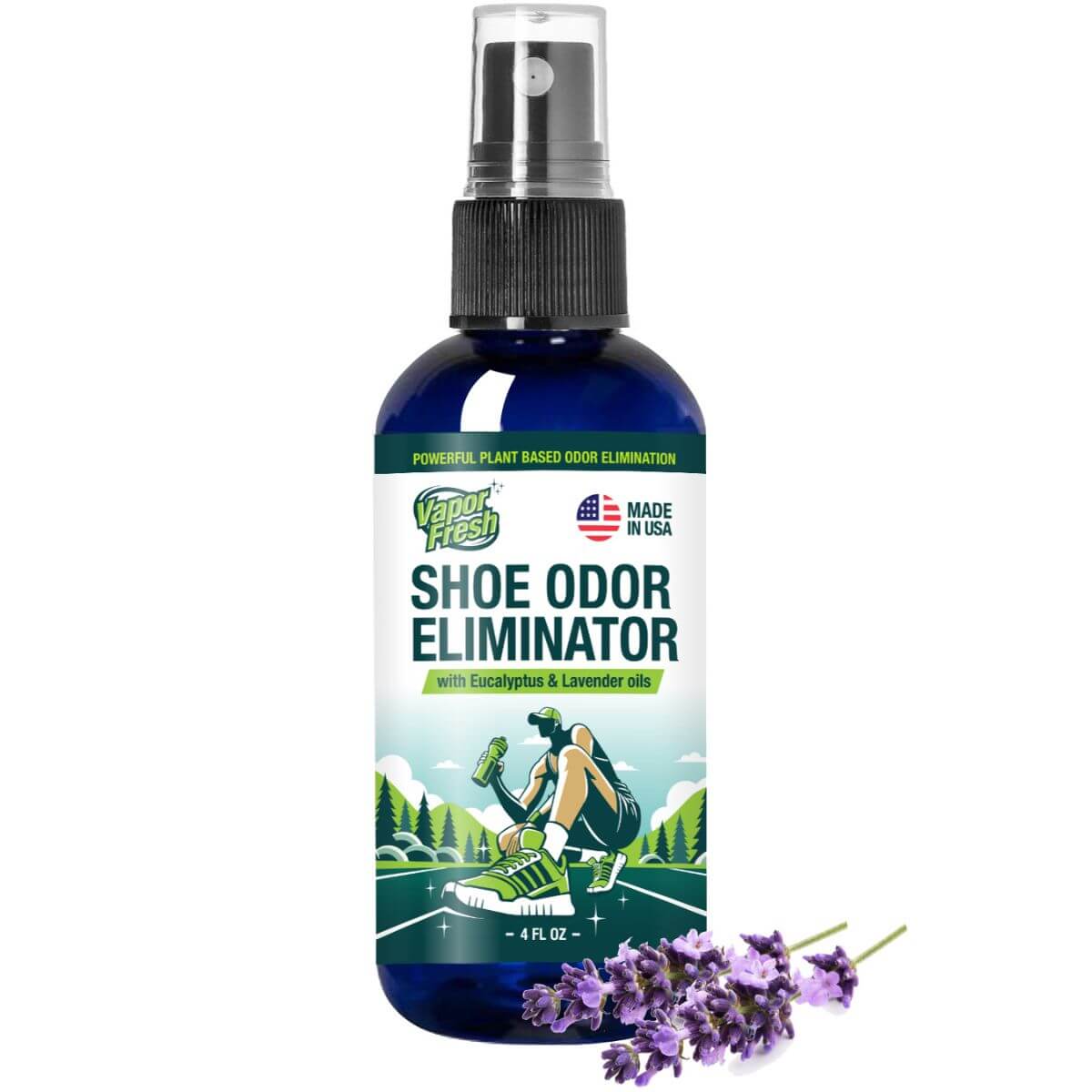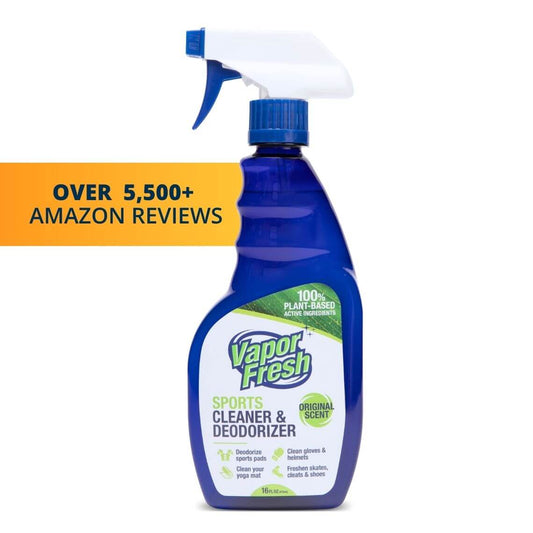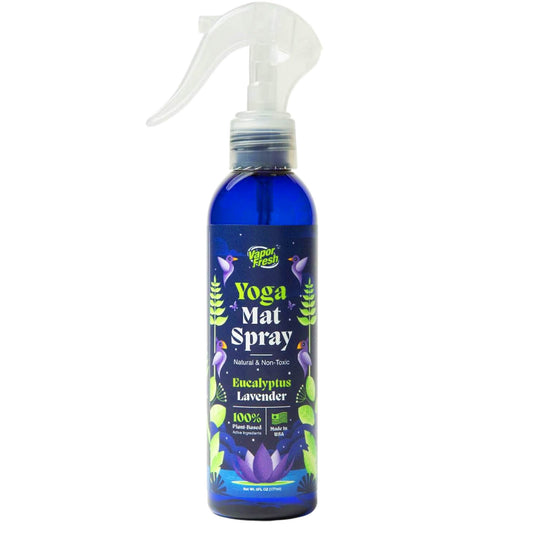
How To Clean & Deodorize A Football Helmet Properly
In this article:
Four Steps To Clean & Deodorize Your Football Helmet
Your football equipment is going to smell, it's just part of the game. But when that smell leaves the field and enters your car, home, locker room and training facility, you have a problem!
Football helmets are one of the more smelly pieces of equipment. Here's how you can properly clean and deodorize your football helmet to ensure it's odor doesn't disrupt the rest of your life and that is remains in good working condition for as long as possible.
Four Steps To Clean & Deodorize Your Football Helmet
It doesn't take much effort to ensure your football helmet stays fresh, clean and in proper working condition. Follow these five quick and easy steps and your helmet will thank you!
Step 1: Remove Loose Dirt & Debris
Hold the football helmet upside down to naturally shake off any accumulated dirt or grass from its surface. For stubborn particles, consider using a soft-bristled brush to gently scrub the affected areas without scratching the helmet's surface. Pay special attention to the face guard and vents, as these areas often trap dirt and can affect visibility and airflow.
Step 2: Wipe Down Hard Outer Surface
Next, take a microfiber cloth and a really good football equipment cleaning spray and start spraying and wiping the outside of your helmet clean. Gently wipe in circular motions, ensuring you address every inch. Spray more cleaning spray as you go, wiping off the excess. Combining a microfiber cloth and a sports cleaning spray ensures you will eliminate every grain of dirt and debris, which keeps the helmet in pristine condition, both in terms of cleanliness and aroma.
Step 3: Spray The Interior Of The Helmet
Next, use this same spray and circular wipe method on the inside of the helmet. Pay special attention to cracks and crevices, as these often become the primary hideouts for bacteria and the resulting foul odors. Be sure to exercise caution around the padding and protective elements of the helmet though - you don't want to knock anything loose that may hinder the helmet's protective abilities.
Once done, then you should re-spray the interior of your helmet with Vapor Fresh Spray, but this time don't wipe it away. Allow the spray to settle into the helmet to eliminate all lingering odors safely and effectively.
Step 4: Allow Your Football Helmet To Air Dry Completely
A wet football helmet invites bacteria and odors back inside, leaving you right back at square one. When you’re finished cleaning the helmet, it's vital to allow your helmet to continue to air dry completely before storing it away. This means keeping it in an area with good airflow and ventilation to speed the process up as much as possible.
Although we want to keep your helmet dry, you do not want to use any external heat sources to speed up the process. Heat from things like hair dryers will compromise and warp the protective elements of the helmet and can reduce it's protective abilities.
This would also be the right time to clean the rest of your football gear. Check out our ultimate guide to cleaning football equipment
How Often Should You Clean A Football Helmet?
Putting together the perfect preventative maintenance routine, post-game cleaning routine and post-season deep cleaning routine will ensure that your helmet stays in top condition for as long as possible.
Preventative Maintenance: This is quick and easy - Are all the screws tight? Is anything loose? Am I storing my helmet between use in a well-ventilated area?
The Post-Game Quick Clean: Following the four simple cleaning steps above after every practice and game will ensure that your helmet never gets too out of control. This makes cleaning as easy as possible.
The Post-Season Deep-Clean: We recommend doing one deep clean at the end of every season, or at least once a year. All this would entail is running your helmet under running water and using a microfiber towel with soap to get every crevice inside the helmet completely clean. Some people also soak their helmet in soapy water in a large container, then rinse it clean under running water. Both methods are fantastic!
How Do You Dry A Wet Helmet?
One of the biggest signs that you're not drying your helmet properly is if it's developing a nasty lingering odor. Drying a wet helmet correctly ensures longevity and prevents unpleasant odors or bacterial growth.
The proper way to dry your football helmet is to allow it to clean it thoroughly with the four steps above and then allow it to air dry naturally. You can speed up the process by positioning the helmet upside down on a flat surface, allowing air to circulate freely inside and moisture to evaporate up and out of the helmet.
You cannot put a helmet in the dryer. The dryer is a big danger for helmets. First, the excess heat will warp key materials and components of the helmet, reducing its ability to protect you. Second, the aggressive agitation of the dryer will send the helmet bouncing around. Even though a helmet is designed to absorb hits, the helmet will not hold up well to the repeated abuse it would be subject to inside of a dryer. Avoid the dryer at all costs.
You also cannot use a hair dryer to dry a helmet. While a hair dryer won't subject your helmet to repeated blows like a dryer would, it would still expose the materials inside of your helmet to excess heat, which will warp and damage the structure of the helmet.
Can You Put A Helmet Inside A Washing Machine?
No, you should not wash a helmet inside a washing machine. Just like a dryer, the agitation from the washing machine will damage the helmet's structure, padding and materials. You might break your washing machine as well.
Helmets are designed to absorb and distribute impacts, and their construction is specific to providing protection. Subjecting them to the vigorous action of a washing machine could cause unseen damage and weaken essential components.
Keep Your Helmet Fresh And Clean With Vapor Fresh!
Vapor Fresh specializes in safer plant based cleaning products for sports and fitness equipment like football helmets! We hope this guide will help keep your helmet fresh and clean for years to come.













